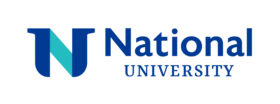Meet Alan Watkins one of our core adjuncts who helped start the NU Cybersecurity program.

Alan Watkins is a Core Adjunct Professor in the Cyber Security and Information Assurance (MS-CSIA) Program at National University within the School of Engineering & Computing, where he has been teaching since 2012, currently for both undergraduate and graduate-level courses. During 2016, Mr. Watkins updated the curriculum for two graduate courses and developed new curriculum for two undergraduate courses as part of the Bachelor of Science in CSIA Program, which started in Spring 2017. In 2018 he created another undergraduate course and updated two others for asynchronous learning.
Mr. Watkins was part of a national curriculum standards panel through the National CyberWatch Center in 2017-2019. The panel aligned various cybersecurity courses with the NIST/NICE Cybersecurity Workforce Framework, and the NSA/DHS Centers of Academic Excellence (CAE) Knowledge Units, to help close the skills gap in the national cybersecurity workforce. In 2017-2018, he was the Managing Editor for a national project to develop a foundational, competency-based cybersecurity course model. In 2018, he co-authored two papers on the use of competency-based learning methodologies in cybersecurity education. From 2011 until July 2019, Mr. Watkins provided cybersecurity consulting services, which included creating cybersecurity policies and procedures for regional and local governments, and helping develop organizational cybersecurity requirements. He also conducted public awareness and education seminars for individuals and small businesses on the topics of cybersecurity and identity theft. His first book, Implementing a Small Business Cybersecurity Program, focused on low-cost and no-cost options, will be published in June 2020. Mr. Watkins was part of a small international team that updated the 20 CIS Controls® from v.6.1 to v.7 and then v.7.1, as well as helping create implementation groups, which are featured in his book.
A little more about Alan
How did you become interested in Cybersecurity?
For many years, I was an IT supervisor and manager with responsibility for system security, among many other duties. In the 1990s, the term “cybersecurity” didn’t exist. My first real experience with system security was doing the Y2K project for the City of San Diego. I had to assess not only the database fields using dates, but also the general security of both office-based computers and the industrial control systems and SCADA systems used in the water and wastewater facilities. Because it is considered critical infrastructure, I ended up coordinating with the FBI’s National Infrastructure Protection Center. After a few more role changes, I became the city’s IT Operations and Security Manager, and I was involved with several regional organizations that were focusing on cybersecurity. I should mention that I had 12 years of experience in law enforcement before moving into the IT field, so getting involved in cybersecurity was a logical combination from my background.
What classes do you teach and which is your favorite?
I teach mostly graduate-level courses for National University – primarily CYB601 (Cybersecurity Toolkit Utilization), CYB602 (Threat Modeling and Intel), CYB606 (Network Defense and Cloud Security), and CYB608 (Ethical Hacking). The few undergraduate courses I’ve taught are CYB320 (Technical Writing) and CYB454 (Cybersecurity Planning and Policy). While I enjoy teaching all of these classes, I would say my favorite is CYB602 – helping students learn how to perform threat modeling, broadening their thinking “out of the box.” Developing the ability to gather intelligence information and use it to enhance security, and learning how to look for different attack vectors or methods based on a single attack scenario.
Advice to new students?
Be prepared to put in a lot of work, especially with the new asynchronous classes. You must be self-motivated and committed to following through on your own. Don’t be afraid of asking the instructor for assistance – either through some direct help or pointing you to other resources that answer your questions. On the other hand, you should try to network as much as possible with other students in your cohort (and beyond). There is such a wide variety of backgrounds and experiences among the students in the CSIA classes, you should be willing to share your experience and knowledge with other students, as you seek to gain insights and knowledge from others.
Advice to recent alumni?
Hopefully, you made some local business contacts during the capstone project. San Diego has a robust cyber community (both employers and in academics), which you should tap into, if you live in the region. If you don’t already have job prospects, check with some of your professors from the CSIA program – they can often provide referrals. If you had the same professor for more than one class, consider asking for a letter of recommendation. Keep in mind that we can only comment on a student’s general performance in class (such as completing assignments on time and receiving average scores above a certain percentile). We can comment on how well you worked together with other students on a team project (when applicable). We cannot divulge actual scores or grades – those must come as part of your transcript.
